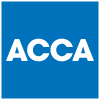Much of the country is holidaying in the UK due to the current uncertainty around foreign travel, which has led to increased rents for UK furnished holiday lets (FHL). This article looks at the tax benefits of investing in such properties.
What is a Furnished Holiday Let?
In order to qualify a property should be fully furnished, commercially let and satisfy all of the following:-
Availability – It must be available for letting as furnished holiday accommodation for at least 210 days in the year.
Letting – It must be let as furnished holiday accommodation to the public for 105 days a year. You cannot include long term lets of more than 31 days.
Pattern of occupation – The total days where lettings exceed a continuous 31 days cannot exceed 155 days.
It is possible to average the days across properties where you have more than one FHL and you can make a period of grace election in certain circumstances when you have not quite satisfied the tests.
Income Tax
Capital allowances can be claimed on furniture and furnishings. You cannot claim relief on the original purchase of these items for ordinary residential lettings. There is greater flexibility for splitting profits with a spouse compared with ordinary residential lettings.
A significant advantage of FHLs compared with normal residential lettings is that there is no restriction on tax relief for interest payments for higher rate taxpayers.
Capital Gains Tax
Disposals of FHLs can qualify for Entrepreneur’s Relief which are taxed at 10% as opposed to the normal 18%/28% for residential properties. Gifts of FHL are deemed to take place at market value for capital gains purposes. An individual gifting a FHL can claim hold over relief so that no capital gains crystallize at that time.
This can be particularly beneficial for passing a FHL to the next generation as it is unlikely that a FHL will qualify for Inheritance Tax business property relief.
Capital Gains Rollover Relief is available where proceeds from the sale of a business asset are reinvested into another business asset. A FHL is a qualifying business asset. At Loucas, we help clients with a wide range of business interests including furnished holiday lets (FHL).
If you are considering buying a FHL or would like to discuss an existing property or portfolio, Loucas would be happy to advise on the matter.
Disclaimer: Content posted is for informational & knowledge sharing purposes only, and is not intended to be a substitute for professional advice related to tax, finance or accounting. Each comment posted by third party readers/subscribers of our website on topics of tax and accounting is their personal opinion and due professional care should be taken by you before you act after reading the contents of that post. No warranty whatsoever is made that any of the posts are accurate and is not intended to provide, and should not be relied on for tax or accounting advice.




